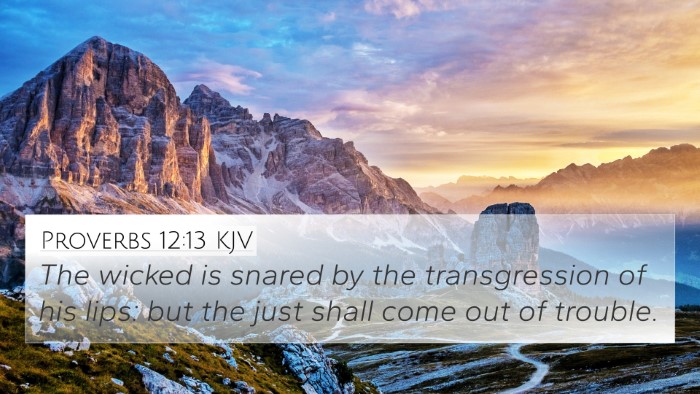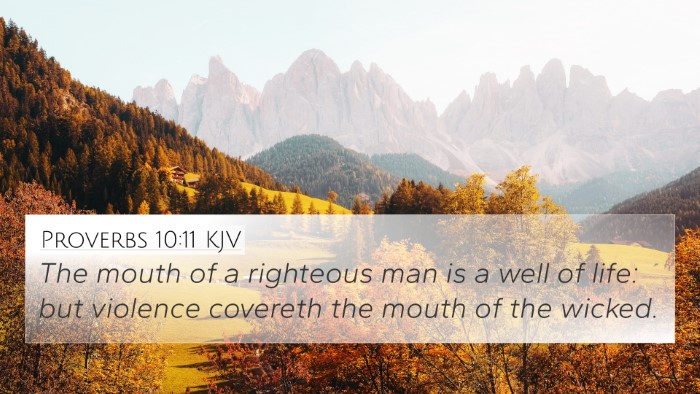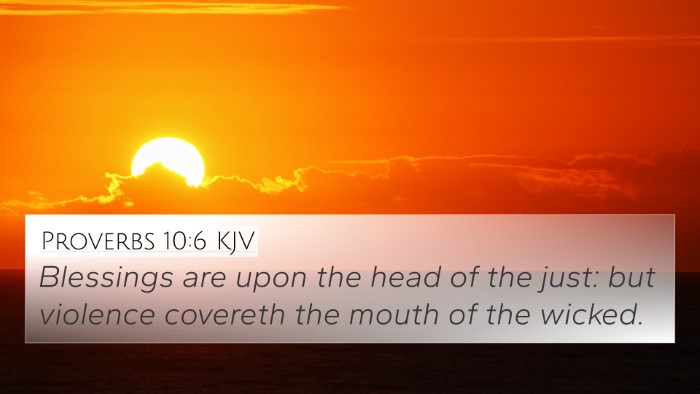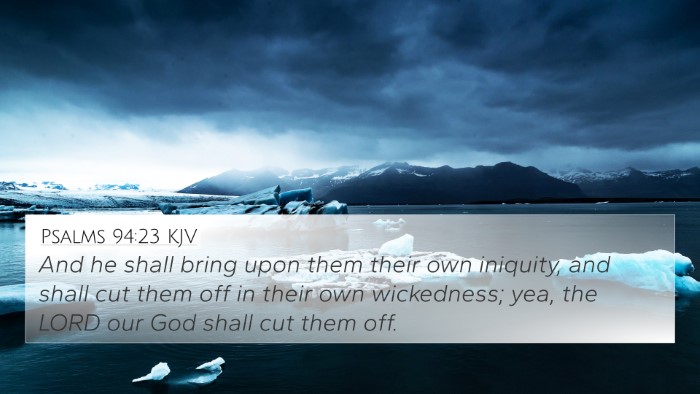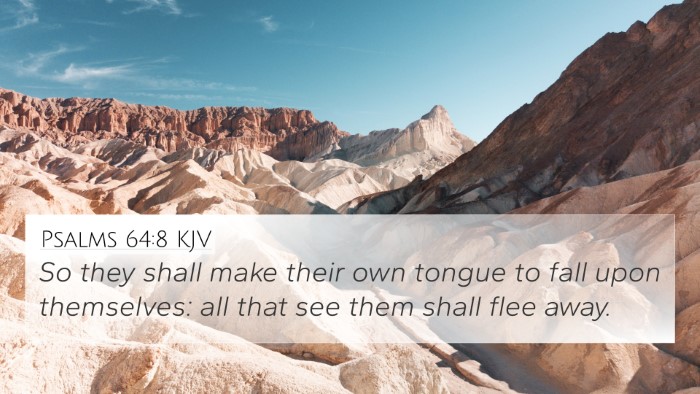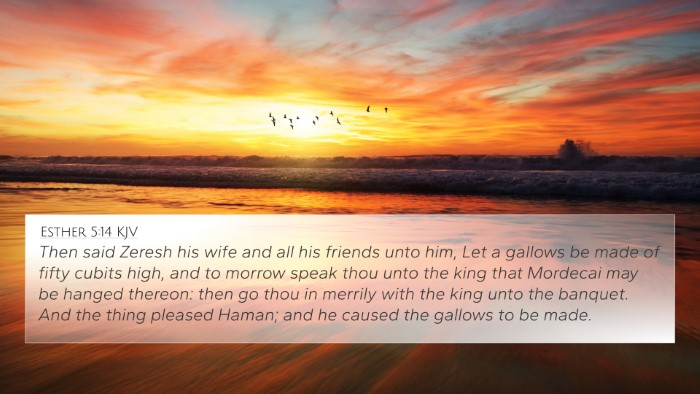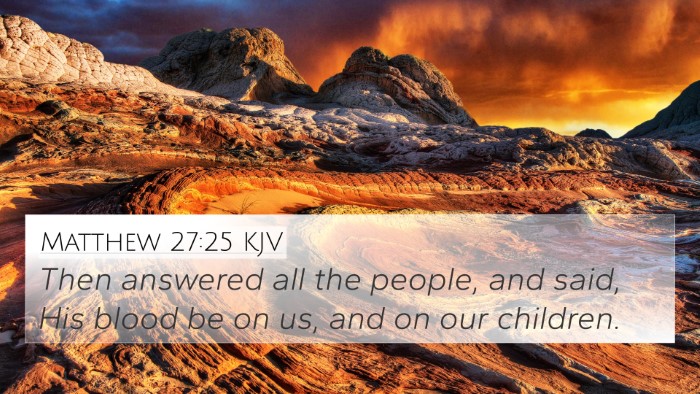Understanding Psalms 140:9
Psalms 140:9 states: "As for the head of those who surround me, may the mischief of their lips cover them!"
This verse provides a profound insight into the themes of divine justice and the consequences faced by the wicked. The psalmist expresses concern over his enemies, praying that their words, which are often deceitful and harmful, will result in their downfall. The passage suggests a call for God’s intervention in bringing judgment upon those who speak with malice.
Contextual Analysis
Psalm 140 is classified as a lament, reflecting the emotional state of the psalmist in the face of adversity and opposition. There are three key elements in this chapter:
- Recognition of Threats: The psalmist is acutely aware of the dangers posed by his enemies, who are actively plotting harm.
- Invocation of Divine Protection: There is a strong appeal for God’s protection and deliverance from these adversaries.
- Expectation of Justice: The belief that God will ultimately hold the wicked accountable for their words and deeds is fundamental to the psalmist's faith.
Commentary Insights
According to Matthew Henry, this verse highlights the confidence the psalmist has in God’s sovereignty and righteousness. The phrase "the head of those who surround me" implies a targeting of the chief adversary, suggesting that leaders or instigators of wrongdoing will face consequences for their actions.
Albert Barnes notes the figurative language, particularly how "the mischief of their lips" refers to the destructive and harmful nature of spoken words, illustrating the power of speech in shaping destinies—both of the speaker and the one targeted. Barnes emphasizes that the psalmist's petition reflects a desire for God to bring justice swiftly and decisively.
Adam Clarke elaborates these ideas by emphasizing the characterization of the enemies. They are not only physical threats but also spiritual ones, using treachery and deceit in their words. Clarke adds that the psalmist's appeal for their mischief to "cover them" is an expression wishing that their own words lead to their downfall, highlighting a moral irony.
Bible Cross-References
This verse connects with several other passages that echo similar themes of justice, the power of words, and God’s protection:
- Proverbs 12:18: "There is one whose rash words are like sword thrusts, but the tongue of the wise brings healing."
- Psalm 64:3: "Who whet their tongues like swords, and draw their bows to shoot their arrows, even bitter words."
- James 3:6: "And the tongue is a fire, a world of unrighteousness..."
- Psalm 109:2: "For the mouth of the wicked and the mouth of the deceitful have opened against me."
- Proverbs 21:23: "Whoever keeps his mouth and his tongue keeps himself out of trouble."
- Isaiah 54:17: "No weapon that is fashioned against you shall succeed, and you shall refute every tongue that rises against you in judgment."
- Proverbs 10:31-32: "The mouth of the righteous brings forth wisdom, but the perverse tongue will be cut off."
Thematic Connections
The themes of this verse exemplify a broader scriptural dialogue about the nature of speech, the repercussions of malicious intent, and the hope for divine justice. Through careful cross-referencing with the identified Bible verses, this verse can be appreciated within a more extensive biblical context that encourages believers to be vigilant over their speech and to trust in God's protective power.
Concluding Remarks
Psalms 140:9 serves as a compelling reminder of the importance of integrity in speech and the need for believers to seek God's justice. Understanding this verse in the light of other scriptural references enriches our grasp of the overarching biblical narrative concerning the moral implications of our words and the guarantees of divine oversight in the affairs of humanity.
Further Study Suggestions
For those interested in deeper exploration, here are some recommended study practices:
- Use a Bible Concordance: To find and analyze cross-references related to other themes of speech, enemies, and divine justice.
- Engage in Bible Cross-Reference Study: Connect related verses to better understand the interconnectedness of biblical themes.
- Explore Comparative Bible Verse Analysis: Look for parallels in different biblical texts to gain insights into the dos and don'ts of speech.
- Consider Thematic Bible Verses: Investigate themes surrounding protection and judgment in both the Old and New Testament.





